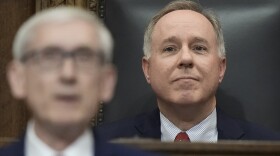John Quiñones made his name in the 1980s and '90s as a correspondent for ABC News, reporting first from Central America, and later covering issues around the world that had not received much widespread exposure in this country.
He reported on the pressures facing the Ndoki rainforest in Congo, and homeless children living in the sewers in Colombia's capital city. Today, while he still reports for ABC, he's best known as the host of "What Would You Do?", a program that uses hidden cameras to pose ethical dilemmas - asking whether regular people would intervene when they witness someone being wronged.
But Quiñones sees plenty of overlap in what his two television worlds accomplish. "We're always trying to shine a light on issues that need to be brought into the light," he says. "With ['What Would You Do?'], these issues happen in real life - they just happen in the shadows."
In fact, Quiñones says one of the best aspects to 'What Would You Do?' is that it puts viewers in a position to realize they can make a tangible difference in the world around them. "Some told me the other day," he says, "that the world would be a better place if we all thought John Quiñones was in the next room, monitoring our behavior, because we would be on our best behavior."
Quiñones, who will keynote SHARP Literacy's annual "A Novel Event" in October, believes that there is a lasting and positive impact from seeing real people make good, ethical decisions on television. "Let's face it," he says, "these are difficult, rather dark times, when you look at politics today and the tone and tenor of what's being said.
"We might be led to believe that things are really dark, and that there's no hope, and we're going to hell in a handbasket. The beauty of [our show] is that in virtually every single one of our scenarios, we see a hero who stands up for a stranger."





